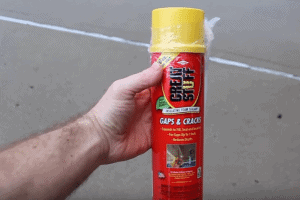
Spray Foam Insulation Product Left Your Home With Fish-Like Odor. Has the use of a spray polyurethane foam (SPF) insulation product left your home with a foul, fish-like odor that has lingered for months? While SPF or spray foam insulation is a highly-effective method of insulating a home, exposure to its key ingredient, isocyanates, […]

Spray Foam Insulation Product Left Your Home With Fish-Like Odor. Has the use of a spray polyurethane foam (SPF) insulation product left your home with a foul, fish-like odor that has lingered for months? While SPF or spray foam insulation is a highly-effective method of insulating a home, exposure to its key ingredient, isocyanates, can cause asthma, lung damage, other respiratory and breathing problems, and nose, skin and eye irritation. The product liability lawyers at Parker Waichman LLP are investigating numerous consumer complaints and potential lawsuits involving the use of spray foam insulation products, including but not limited to:
If your home has developed odor problems, or members of your family have experienced health issues, including asthma and other breathing problems; eye, nose or throat irritation; or headaches, since the application of a spray foam insulation product to your home, you may be entitled to compensation from the manufacturer of that product. Parker Waichman is offering free lawsuit consultations to homeowners who have experienced problems with spray foam insulation products. To discuss your potential spray foam insulation lawsuit with one of our product liability lawyers, please contact
Parker Waichman LLP today.
Spray foam insulation products work by creating a chemical reaction between two component parts, commonly referred to as Side A and Side B. Side A contains very reactive chemicals known as isocyanates. Side B contains a blend of proprietary chemicals that provide unique properties in the foam. While licensed installers have to wear a breathing apparatus and other protective gear when these products are applied, the chemicals in spray foam insulation are supposed to become non-toxic and inert once they cure. However, a large number of homeowners have reported lingering orders and health problems following the use of spray foam insulation in their homes.
According to the U.S. Environmental Protection Agency (EPA), exposure to isocyanates can trigger serious health problems, including:
Chemicals used in the B-side of spray foam insulation products may include chlorinated TRIS, a flame retardant removed from children’s sleepwear in 1979. Studies show it can mutate DNA, cause harm to the developing brain, disrupt hormones and cause cancer. The State of California’s Carcinogen Identification Council has also determined TRIS to be a carcinogen. In 2012, the state of New York banned chlorinated TRIS from any children’s products.
The personal injury attorneys at Parker Waichman LLP offer free, no-obligation case evaluations. For more information, fill out our online contact form or call 1-800-YOURLAWYER (1-800-968-7529).


